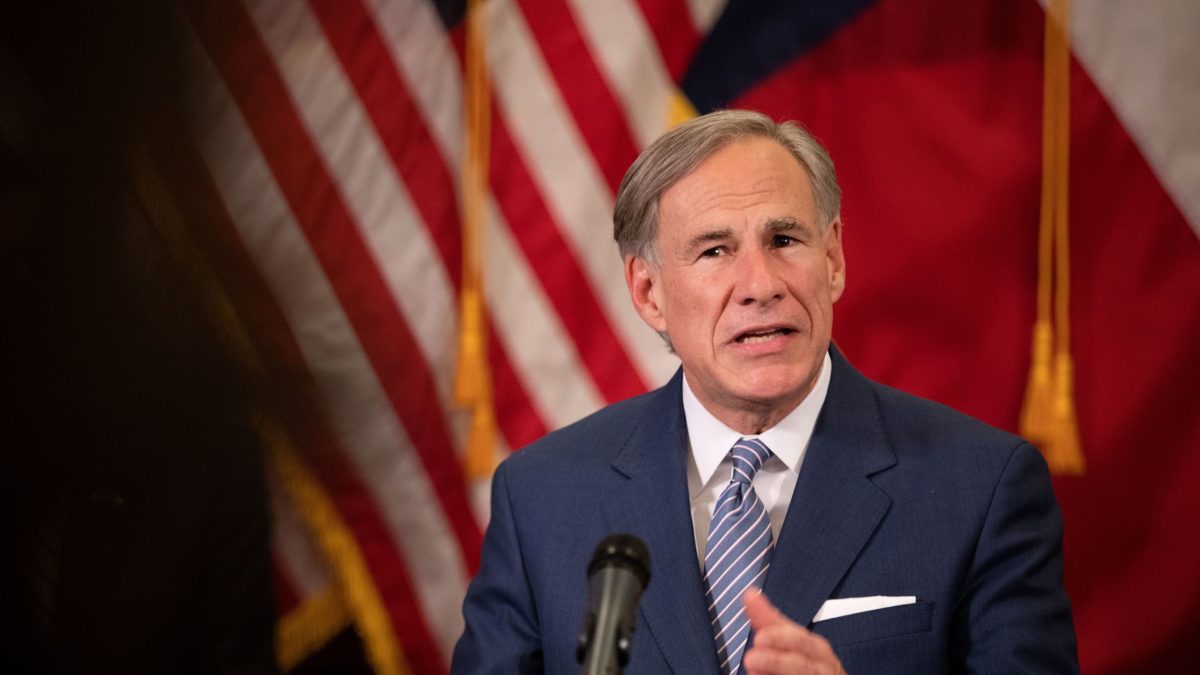As Texas Republican Gov. Greg Abbott formulated a plan this week to reopen the world’s 10th largest economy, he had to strike a delicate balance between two opposing forces: a push from the state’s powerful business community eager to get back to work and health professionals and economists warning that a premature restart could be deadly.
In the end, Abbott took a measured approach. Instead of kicking off a full restart, the Texas governor announced that a group of medical and economic experts will guide him through a series of incremental steps aimed at slowly reopening the state’s economy.
The group’s aggressive name, the “Strike Force to Open Texas,” belies Abbott’s surprisingly cautious framework. Plans to restart business won’t come until April 27, and Abbott stressed they will be determined by “data and by doctors.”
Still, Abbott is ahead of the curve as one of the first big state governors to announce a firm time line for lifting his April 2 stay-at-home order.
“Opening in Texas must occur in stages,” Abbott said during his briefing Friday. “Obviously, not all businesses can open all at once on May 1.” A premature opening of private businesses, he said, would risk further outbreaks and “be more likely to set us back, rather than to propel us forward.”
Friday’s plan was a significant step back from what some had anticipated would be a much more aggressive push from Abbott to reopen the famously pro-business Texas. The Lone Star State and its $1.8 trillion economy, second only to California in size, has been hit particularly hard by a one-two punch of tumbling oil prices and a global pandemic.
Texas is awash in unemployment claims that have topped one million in the past four weeks—representing about 7.2% of the state’s total labor force.
At the same time, it’s only been two weeks since Abbott issued his stay-at-home order. Texas remains woefully behind many of the nation’s other largest states in the number of coronavirus tests conducted, which made some of Abbott’s early optimism about re-opening all the more striking. In a state of 29 million people, only 169,536 coronavirus tests had been conducted as of Friday, according to the Texas Department of State Health Services, with a total of 17,371, cases reported and 428 coronavirus-related fatalities.
That’s put Abbott in a difficult position of having to protect the Texas economy while heeding the warnings of epidemiologists. As he’s discussed plans to get Texas back to work, Abbott has toggled between making it sound as if Texas will be among the first states ready to throw open its doors and striking a more prudent tone.
Through the week, as Abbott’s public messaging made it sound less likely that he would announce a grand reopening, he began taking fire from members of his own party who say he’s moved too slowly to reinvigorate the economy and has been overly deferential to public health experts. On Thursday for example, Don Huffines, a former Texas Republican state senator who represented Dallas County, wrote a blistering op-ed for the Austin American-Statesman, excoriated Abbott for his handling of the coronavirus crisis.
Huffines charged that Abbott has been in lockstep with “emotional decision makers in Washington who have caused massive economic damage” instead of recognizing Texas’ power as a sovereign state.
“He relies on Washington for direction, and lets local leaders walk in where his lack of leadership creates a void. Mr. Abbott alone is accountable for destroying the Texas economy,” wrote Huffines.
Meanwhile, Texas Democrats are highlighting a recent investigative piece by the Houston Chronicle stating that Texas is near the bottom among the 50 states in per capita testing.
“As difficult as it may be, Texas must wait for the right time to reopen,” said Manny Garcia, executive director of the Texas Democratic Party. “If our leadership does not heed the advice of public health officials, we risk an even deeper public health and economic catastrophe. Lives are on the line.”
In the end, what Abbott and many other elected officials face is far more than just an economic decision.
“This is ultimately a moral dilemma between the good of the majority of the population based on an improved economy, versus those most damaged by letting this disease continue to spread and potentially letting the hospital system be overwhelmed,” said Bill Gilmer, an economist at the University of Houston. “It’s not just about economics, it’s a moral decision.”


